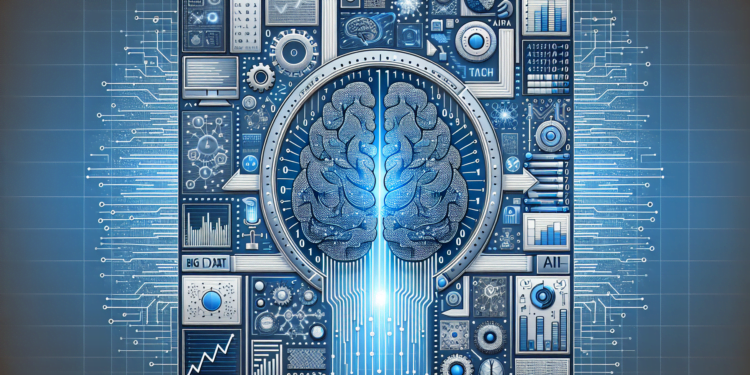The Big Data paradigm marks an era in which the volume, velocity, and variety of data have escalated to unprecedented levels. This phenomenon not only revolutionizes the storage and processing of information but also propels the evolution of artificial intelligence (AI) toward new horizons of efficiency and sophistication.
Fundamental Advances in Big Data Processing
Advances in algorithms and computing architectures have enabled AI to take center stage in Big Data management. Deep learning models, such as Convolutional Neural Networks (CNNs) and Recurrent Neural Networks (RNNs), have demonstrated a remarkable ability to process and extract knowledge from large datasets. These models are crucial in pattern detection and performing tasks ranging from image and voice recognition to predicting time series.
Emerging paradigms like graph processing and neuromorphic computing further expand the technical arsenal available to tackle the Big Data challenge. Graph processing empowers AI to understand and operate on complex relationships in massive datasets, while neuromorphic computing seeks to replicate the energy efficiency and biological parallelism of the human brain.
Big Data Architectures and Distributed Storage
The system architecture for handling Big Data has been revolutionized by distributed platforms such as Hadoop and Spark. Hadoop, with its Distributed File System (HDFS) and MapReduce programming model, provides a foundation for scalable parallel processing. Spark offers significant improvements with its memory-based approach and Resilient Distributed Datasets (RDDs), optimizing computation for faster analysis.
Data storage has been transformed with technologies such as NoSQL, which offer highly scalable and flexible alternatives to traditional relational databases. These systems are capable of handling structural variations and the changing nature of Big Data, such as document storage and time series processing.
AI and Big Data: Ethical and Social Implications
With the power of AI and Big Data comes great responsibility. Ethical and privacy concerns have been catapulted to the forefront of public debate. Generative models like GANs (Generative Adversarial Networks) showcase both creative and destructive potential, where the creation of deepfakes has raised concerns about misleading information and the authenticity of multimedia content.
Big Data-focused AI has also highlighted the importance of transparency and explainability. With increasingly complex models, the imperative of interpretability, or understanding “why” an AI arrives at certain conclusions, has become critical. Tools such as attribution models and adversarial modeling techniques seek to meet this need for clarity, integrating the ability to trace and understand the reasoning behind an AI model.
Emerging Applications and Future Directions
Meanwhile, the practical applications of AI in the field of Big Data continue to blossom. Personalized medicine, for example, relies on vast sets of genetic and clinical data to develop tailored treatments. AI in personalized medicine not only has the potential to improve patient outcomes but also fosters a deeper understanding of complex and multifactorial diseases.
In the public sphere, the analysis of massive datasets provides a lens to comprehend large-scale social and economic dynamics, influencing the formulation of policies and resource allocation with a degree of precision previously impossible.
The trend toward automation and process optimization through AI in industries such as manufacturing and logistics illustrates the transformative power of Big Data. Here, AI offers not just operational efficiencies but also new business models and work paradigms.
Conclusion
AI and Big Data are synergistic forces reshaping the fabric of society and the global economy. As these technologies evolve, continuous reflection on their implications and adaptation to emerging challenges become imperative.
The confluence of advancements in machine learning, parallel processing architectures, and distributed storage is laying the groundwork for an era of innovations. The promise of Big Data-centric AI is to provide deeper insights, more informed decisions, and, essentially, a richer understanding of our world.






















